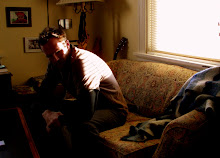—Stephanos Dedalos! Bous Stephanoumenos! Bous Stephaneforous!
Their banter was not new to him and now it flattered his mild proud sovereignty. Now, as never before, his strange name seemed to him a prophecy. So timeless seemed the grey warm air, so fluid and impersonal his own mood, that all ages were as one to him. A moment before the ghost of the ancient kingdom of the Danes had looked forth through the vesture of the hazewrapped city. Now, at the name of the fabulous artificer, he seemed to hear the noise of dim waves and to see a winged form flying above the waves and slowly climbing the air. What did it mean? Was it a quaint device opening a page of some medieval book of prophecies and symbols, a hawklike man flying sunward above the sea, a prophecy of the end he had been born to serve and had been following through the mists of childhood and boyhood, a symbol of the artist forging anew in his workshop out of the sluggish matter of the earth a new soaring impalpable imperishable being?
His heart trembled; his breath came faster and a wild spirit passed over his limbs as though he were soaring sunward. His heart trembled in an ecstasy of fear and his soul was in flight. His soul was soaring in an air beyond the world and the body he knew was purified in a breath and delivered of incertitude and made radiant and commingled with the element of the spirit. An ecstasy of flight made radiant his eyes and wild his breath and tremulous and wild and radiant his windswept limbs.
—One! Two! ...Look Out!
—O, Cripes, I’m drownded!
—One! Two! Three and away!
—Me Next! Me next!
—One! …
—Stephaneforos!
His throat ached with a desire to cry aloud, the cry of a hawk or eagle on high, to cry piercingly of his deliverance to the winds. This was the call of life to his soul not the dull gross voice of the world of duties and despair, not the inhuman voice that had called him to the pale service of the altar. An instant of wild flight had delivered him and the cry of triumph which his lips withheld cleft his brain.
—Stepaneforos!
What were they now but cerements shaken from the body of death—the fear he walked in night and day, the incertitude that had ringed him round, the shame that had abased him within and without—cerements, the linens of the grave?
His soul had arisen from the grave of boyhood, spurning her graveclothes. Yes! Yes! Yes! He would create proudly out of the freedom and power of his soul, as the great artificer whose name he bore, a living thing, new arid soaring and beautiful, impalpable, imperishable.

